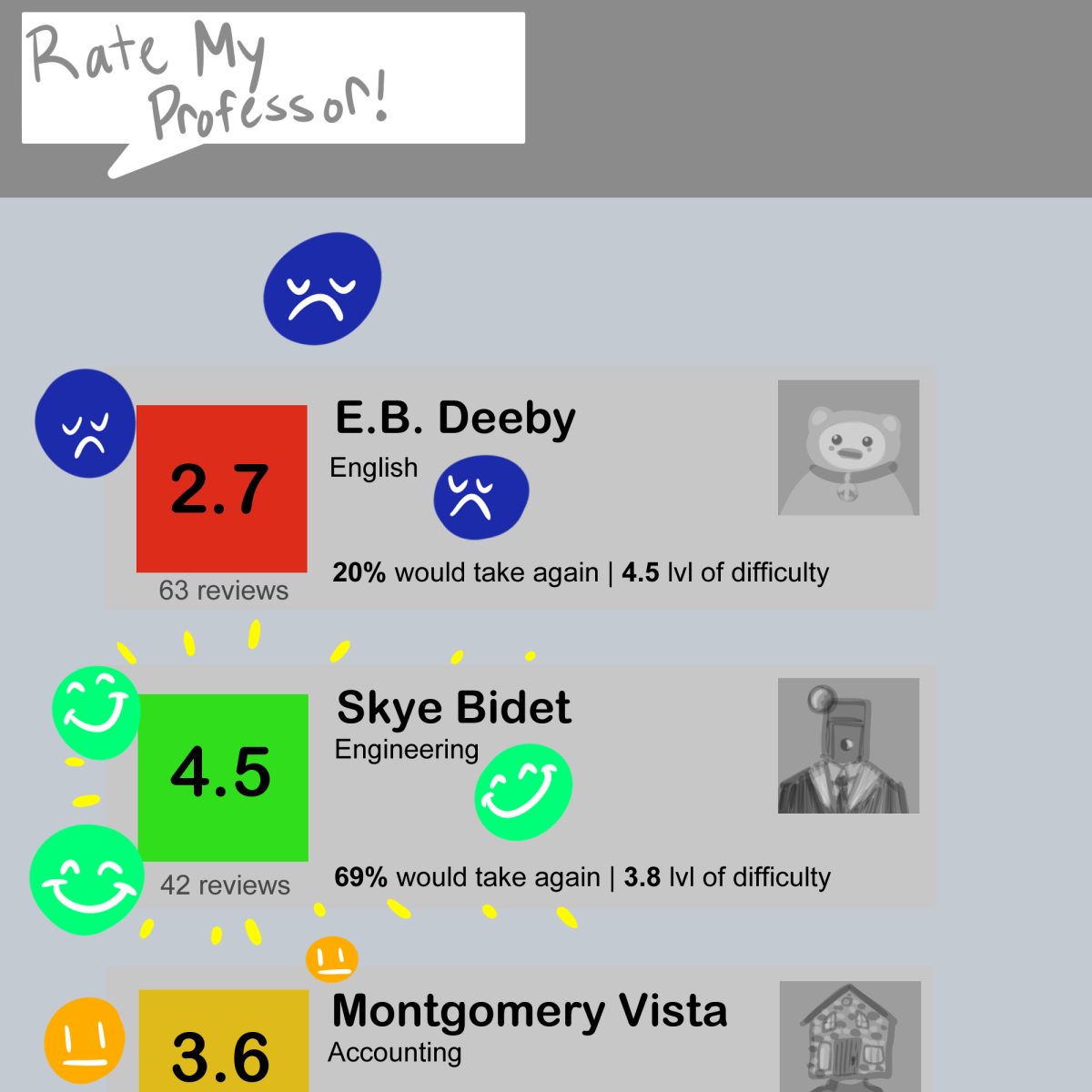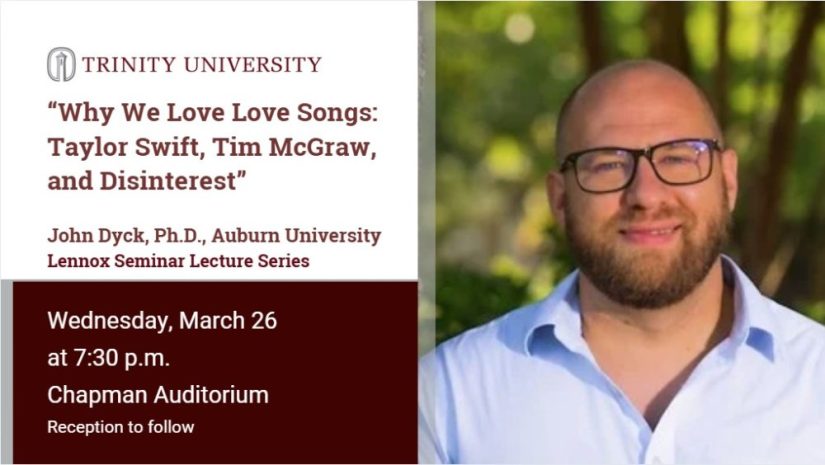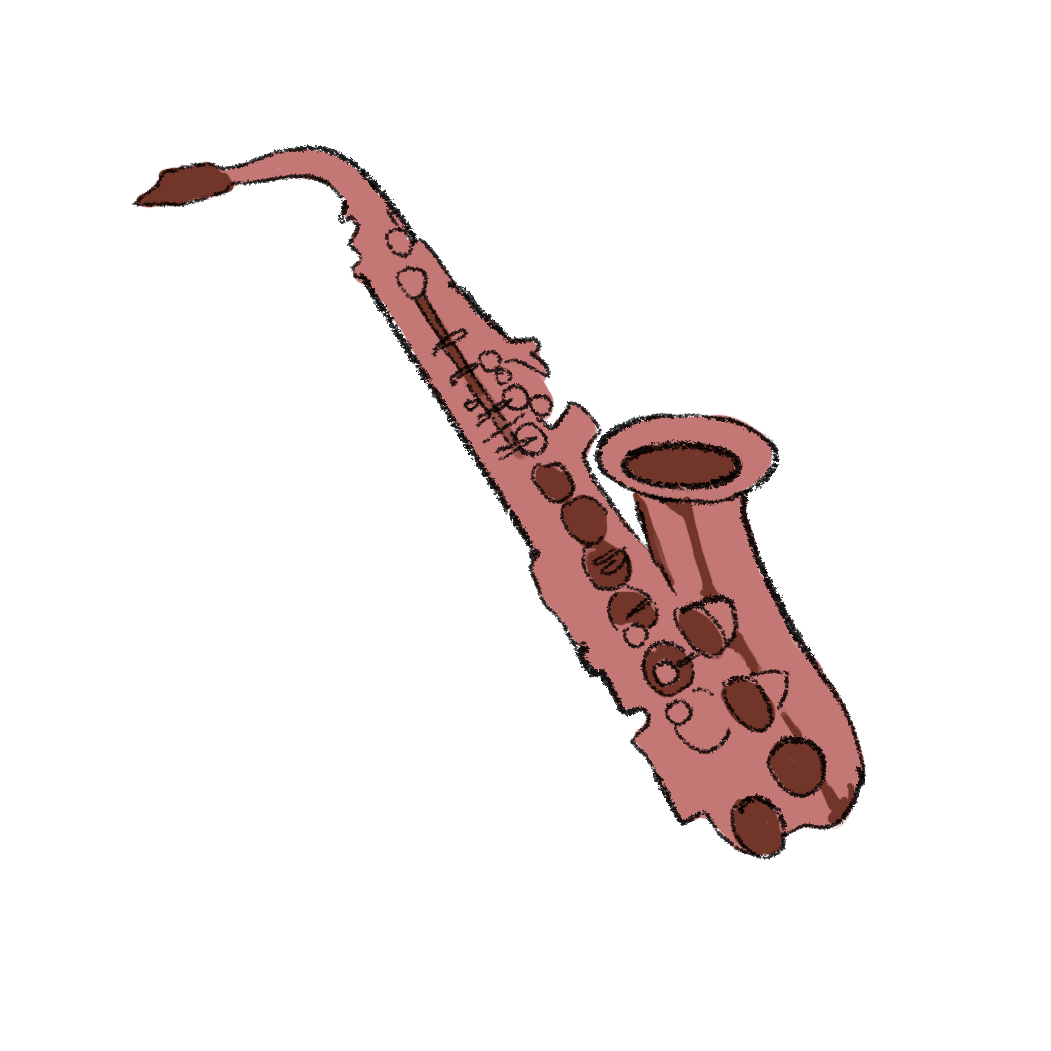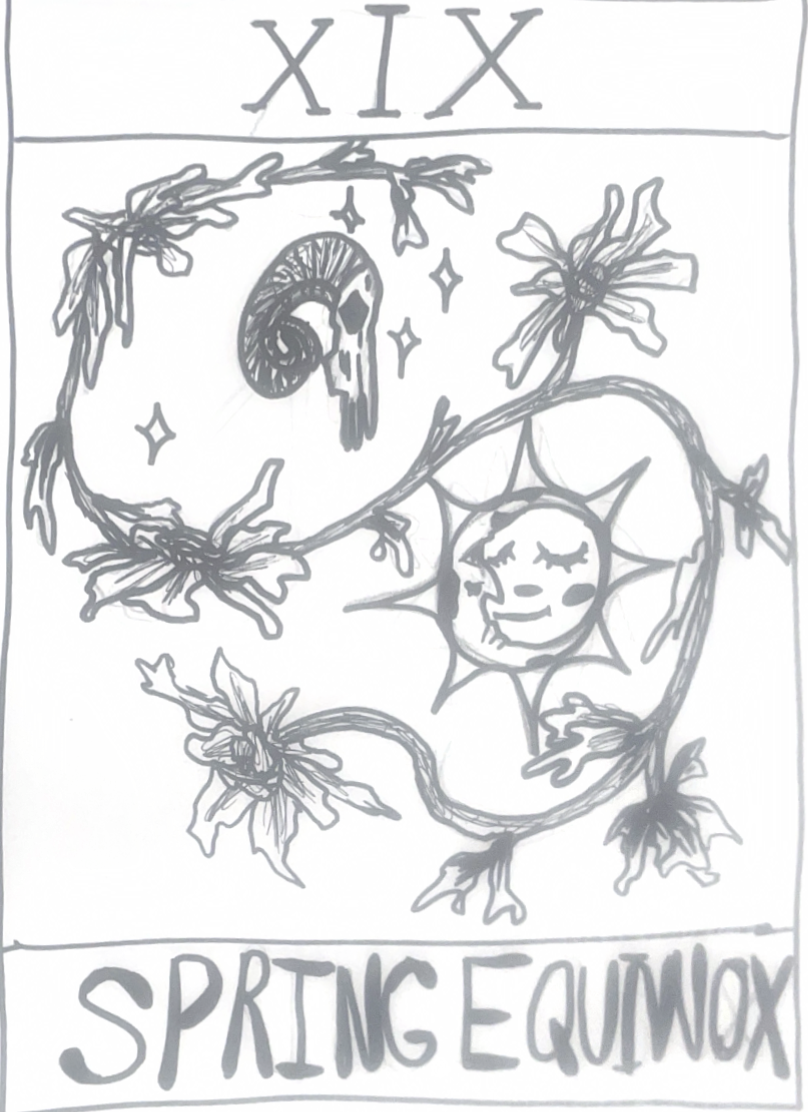Students at Trinity University often use Rate My Professor before class registration to assess other students’ opinions of a professor and the courses.
The website offers information about the professor’s “overall quality,” which is rated from 1 to 5 and determined by the rating distribution, which ranges from “awesome” to “awful.” Rate My Professor also offers students the option to see reviews for specific classes.
John R. Hermann, associate professor of political science, explained that he has “mixed feelings” regarding Rate My Professor.
“People go there with a mindset of what they want to do, and it’s usually those that have stronger feelings about the professor, either positively or negatively,” Hermann said. “It’s not capturing really what’s going on. It is capturing the outliers of the strong feelings regarding the professor.”
Trinity University has an undergraduate student population of 2,581, which is reflected in the quantity of reviews on Rate My Professor. Hermann said that if the survey was done to all students and done scientifically, it would be a more representative sample.
“I believe that Rate My Professor should be looked at for exactly what it is — for the extremes,” Hermann said. “The larger the sample of students, the more representative the sample. If I have 10 people, it is 10 people with really strong opinions for or against me. It is hindered by the ‘n,’ or the number of cases.”
J’Leen Manning Saeger, assistant professor of modern languages and literature, said she believes Rate My Professor is “rough,” because it does not have any recourse. She has not looked at her Trinity ratings on the website, but she has from her previous schools.
“Those two negative marks are those that I think about the whole time,” Sager said. “There is nobody to talk to if there is a literal misunderstanding. You never want to turn someone off to a language.”
Sager said that she wonders why students use Rate My Professor. She said she believes the website is “disingenuous.” She explained that non-tenured professors are more at risk from such negative reviews.
“I think sometimes we are not always at our best, and that can come back to hurt someone in their job or career,” Saeger said. “We can not reach everybody. I would hate for someone’s negative experience to turn away someone who might have liked the class.”
Sebastian Buscemi, senior business and Spanish double-major, said he does not use Rate My Professor to make the final decision on which class to take, but it is a factor. He explained that he is constrained by time when creating a class schedule.
“I mainly look for the comments, because I think numbers can throw it off a bit,” Buscemi said. “I like to see specifically why people would say that. Because if it is ‘Oh, they give a lot of homework,’ that’s one thing. But if they do not go to their office hours, they don’t respond to emails or are not available, that’s a red flag for me.”
Buscemi said that he believes the website is beneficial because it provides students’ opinions. He explained that he would use Rate My Professor if he were a professor.
“I still think it provides a better sense than none. If you feel a strong way about something you are more likely to post something,” Buscemi said. “I’ve never used Rate My Professor to review a teacher. It is the extremes, so it can definitely be skewed.”
He recommends that people write reviews on Rate My Professor because he believes the course evaluations are rushed.
“If you feel a type of way about a professor, maybe it will help someone else’s browsing in the future who may have the same learning styles as you,” Buscemi said. “It is a good thing to write the reviews.”
Ian Ong, first-year undecided major, said he used Rate My Professor before registering for classes. He said he did not know about this website before college.
“I found it pretty interesting. You can see what people say. You can see their honest opinions — of any random student,” Ong said. “What people say is unfiltered, so you have to interpret it for yourself.”
Ong said that he has seen professors with mediocre reviews. However, he explained that these professors turned out to be “really good.” He said that the reviews might represent how hard the class is, not the professor.
“If every single student says ‘This professor is bad,’ then obviously there is something wrong. But if a professor has a mixed rating, it really just depends on what type of student you are. I think most people look at the numbers which is bad,” Ong said.










